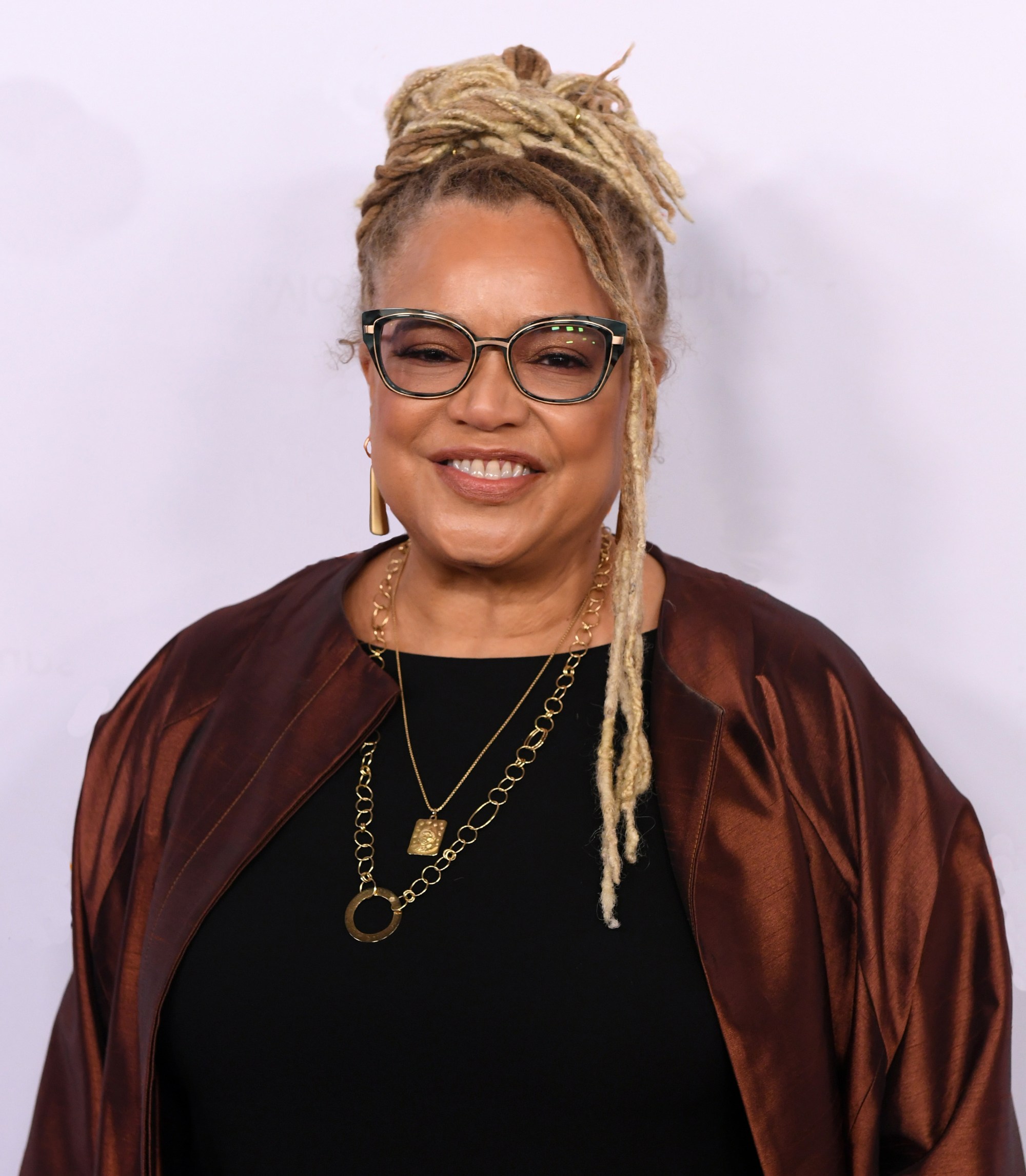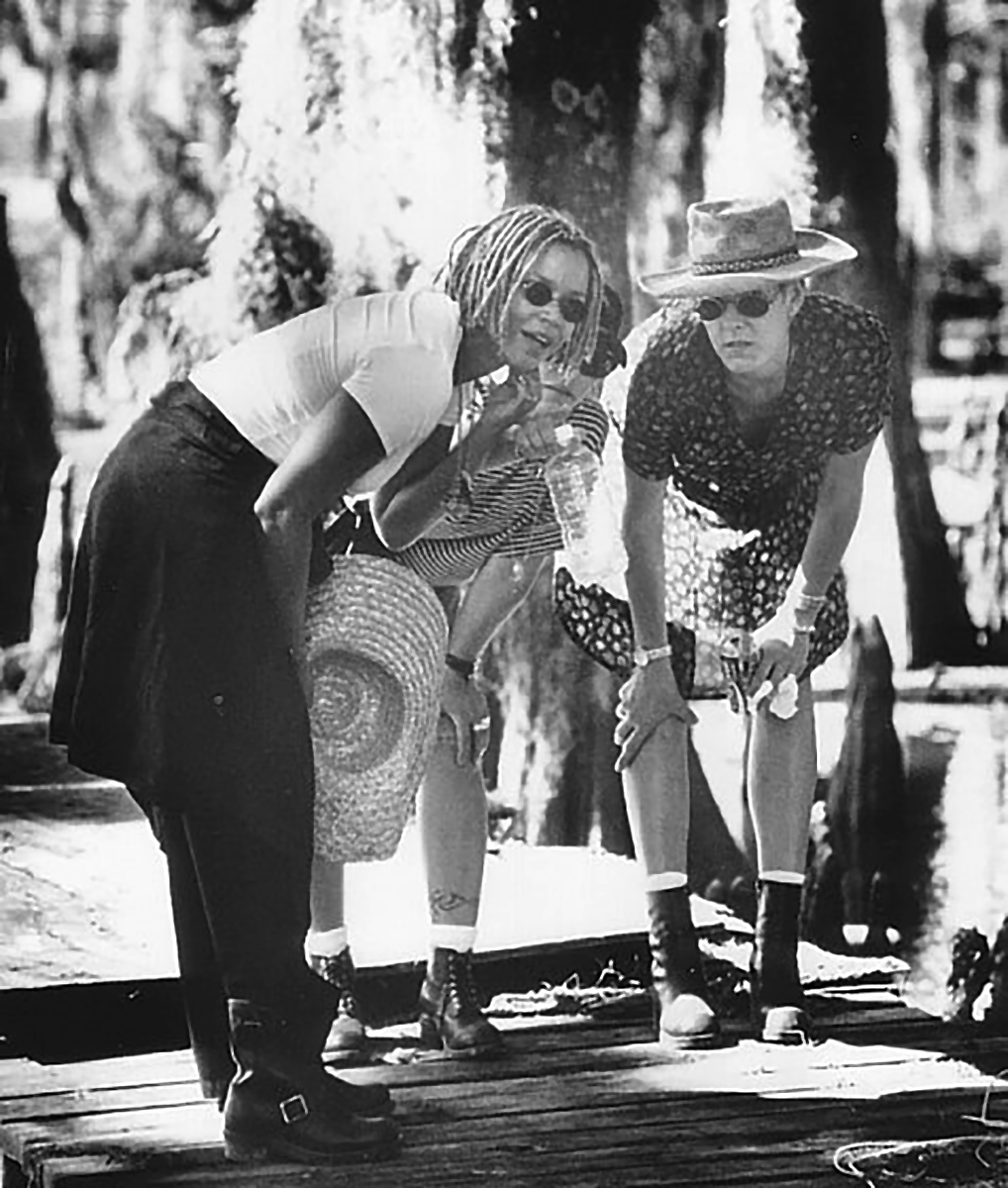
- Industry
Kasi Lemmons Learned How to Trust Her Silence
Eve’s Bayou is the film that introduced the then 36-year-old Kasi Lemmons to audiences as a director. It is also the film that Ebert once rated “number one on the forgotten list”. Anyone who has seen it would agree that it deserved more recognition than it got. Such was and still is (for the most part) the fate of African American stories told by African American filmmakers.
Karen (Kasi) Lemmons was born into an academic family in St. Louis, Missouri, her father a biology teacher, her mother a counselor who wanted to become a psychologist, which she achieved after divorcing her husband and moving to Newton, Massachusetts to attend Harvard. Kasi and her two sisters had access to a first-rate education, attending private schools and in Kasi’s case an acting program that is part of NYU’s Drama School and enabled her to take acting classes studios at the Lee Strasberg Institute and Stella Adler. She also went to the New York University’s Tisch School of the Arts, UCLA, and The New School of Social Research Film Program, and was awarded an Honorary Degree, Doctor of Humane Letters, from Salem State College in 1998. And she became an Associate Arts Professor at New York University’s Tisch School of the Arts.
The acting was great, and she had regular guest roles in all sorts of TV-series such as ER, The Cosby Show, Murder, She Wrote, and As the World Turns, as well as a small part in School Daze, Vampire’s Kiss, and The Silence of the Lambs among others. But it was not enough and frankly, Lemmons had enough of running to auditions. She wanted to be in charge. And that meant directing. She sees the job behind the camera as the culmination of acting and writing, the perfect marriage, so to speak. Logic would dictate that helming her own feature was a natural progression, but Hollywood and the film business, in general, have nothing to do with logic. She was not a beanie-wearing white, male hipster who spends his time at the right coffee spots in and around LA, striking up conversations and making the right connections. She did it her way.
She sat down and wrote a script about a girl in the Creole South who believes that her gift – and voodoo curse – of clairvoyance is the reason her family falls apart. To get financing took an extra effort: she made a short film called Dr. Hugo which was based on a section of her script for Eve’s Bayou. “I went to this meeting and I was nine months pregnant. I might as well have been barefoot.” She laughs, “I thought, never in a million years am I gonna get this job. I was a Black woman, pregnant and there was one woman-executive at the table, and I said, I’m gonna have this baby and then I’m gonna direct the movie. And they said okay.” But the hurdles were not finished. During the shoot, a male hairdresser started mansplaining how to direct to her and saying things like “never let them see you cry”. Not that Lemmons shed tears of stress. “I think when people look for a director, they are looking for someone like themselves. They hear the director and think white and male, not black and female. It’s going to take a while to change. We are 50% of the population, why are we at 10.8% of directors?”
Eve’s Bayou, starring Lynn Whitfield, Debbie Morgan, Diahann Carroll, a young Jurnee Smollett, and Samuel L. Jackson, who also served as producer, became a critics’ darling and won an Independent Spirit Award. More importantly, it endured, and it was deemed “culturally, historically and aesthetically significant” by the Library of Congress in 2018. “It was a huge transition for me, going to this from acting, even though I had gone to school for it, there was something I could not have predicted”, she says about her directorial debut; “I needed to write it. It was a story I could tell you in a bar from beginning to end. I knew it in my bones, I dreamt about the characters,” she said on a recent panel for the New Orleans Film Society: “I didn’t know what it was going to be, whether it was a novel or something else, I didn’t think about the outcome.” When the film was greenlit, she felt a huge responsibility towards what she calls “this magnificent cast”. Lynn Whitfield talks about how impressed she was of her director’s knowledge of the characters: “I was going to be all feminist and in my co-star’s face during a confrontational scene, and Kasi said, ‘No, do not look at her, this is so much stronger if you both just look out the window.’ This may have been Kasi’s first movie, but she held us to her creativity and her vision. When I saw the scene, I could not believe how powerful it was.” Whitfield says that the lessons gained from her director have stayed with her: “Cut to 2020 and what I’ve learned, even though I had many accomplishments, is that people can now see what I’m thinking when I’m in a scene. I don’t have to say a word. So, the most powerful lesson I learned as an actor was to trust my silence.”

From the outside – and given their recent collaboration on Harriet – one might think that meeting New Orleans jazz star and composer Terence Blanchard on Eve’s Bayou served her well. Not so, Blanchard says, it was the other way round: “I had done some films with Spike Lee and was being sent a lot of scripts, but they didn’t excite me and I was frustrated. Then I got (Kasi’s) film and was blown away. For an African American female to show this level of accomplishment on her first work, is extraordinary. She put together a story, that for me, being from Louisiana, we don’t see much of. I could relate to everything. And it inspired me not to be the weak link in the chain.”
Lemmons followed up her debut success with The Caveman’s Valentine, again starring Jackson, and then filmed a tribute to Sidney Poitier when he was honored by the Academy during the 74th Oscars. She also wrote and directed the supernatural thriller The Battle of Cloverfield and the biopic Talk to Me with Don Cheadle. In 2013 she made the Broadway musical Black Nativity into a feature, starring Jennifer Hudson, Forrest Whitaker, and Angela Bassett. It then took her another five years to direct a movie: she had wanted to tell the story of Harriet Tubman for a long time, but she needed to not only find her character’s voice but also the perfect actress to portray her. She accomplished both when she cast Cynthia Erivo who got a Golden Globe nomination for it.
Her next project reunites her again with Terence Blanchard: they are working on an opera that had a soft premiere in St. Louis and is scheduled to open at the Met in September of 2021. Yes, the Met. It is called “Fire Shut Up in My Bones” and based on Charles Blow’s memoir, the gut-wrenching story of a Black boy who grows up as the youngest of five brothers amidst domestic violence and sexual molestation in a segregated town in Louisiana. Blanchard composed the music; she is the librettist. Because why not? Above all, Kasi Lemmons refuses to be boxed into one job, one category, one genre. And that makes her one of the most fearless artists in the world.

